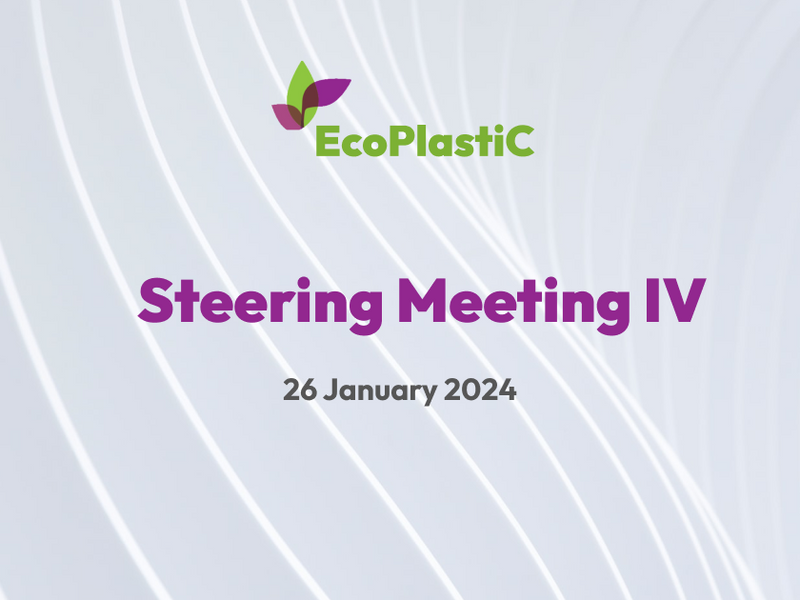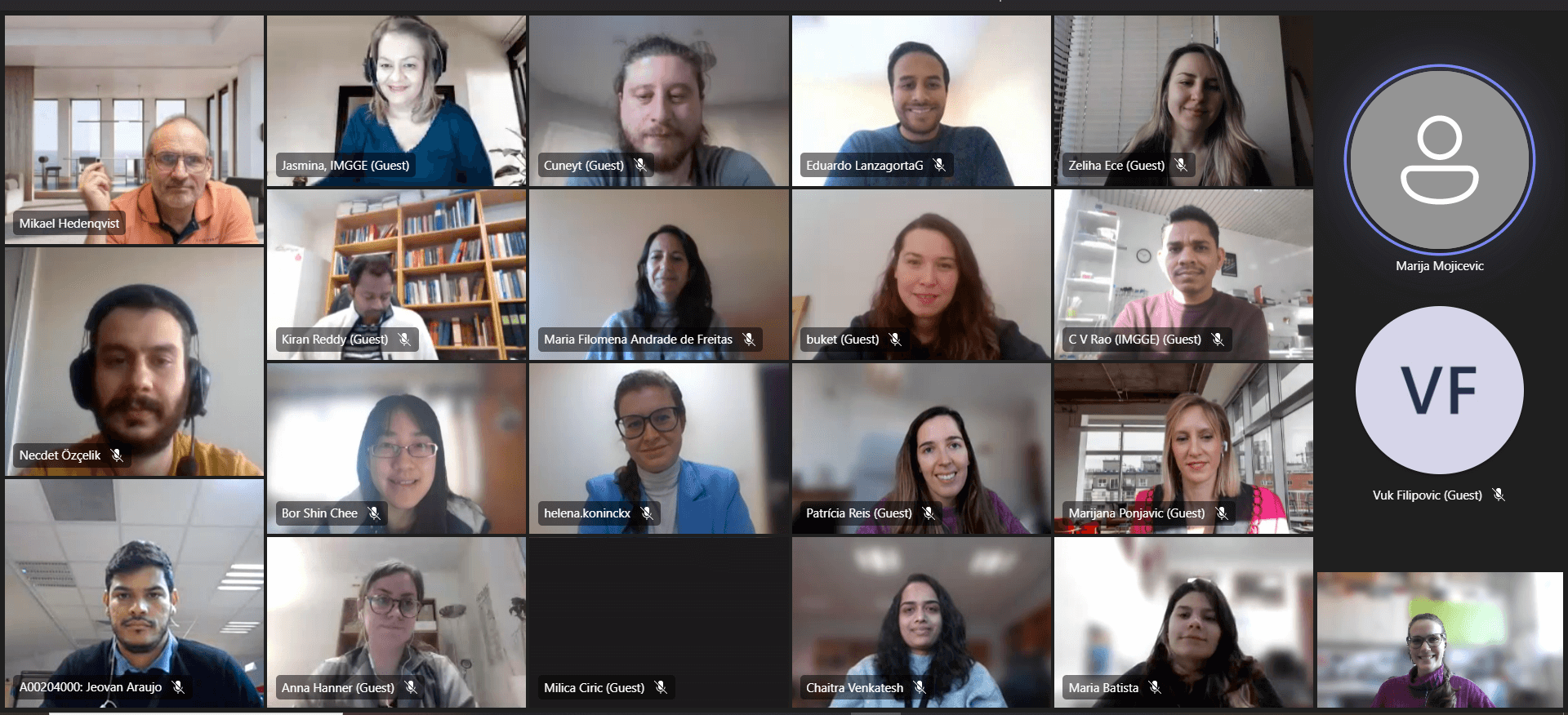Fourth EcoPlastiC Steering Meeting

The fourth online EcoPlastiC Steering Meeting (SM) took place on 26 January 2024 where partners presented the latest updates within their respective Work Package and communicated plans for the future.
Within WP2, TUS presented work performed on REXed metalized PET and high yields of sodium salt of TPA (terephthalic acid) were obtained using different settings. Metallized PET and residues were analysed using FTIR (Fourier Transform Infrared Spectroscopy), TGA (Thermogravimetric analysis), DSC (differential scanning calorimetry) and ICP-MS (inductively coupled plasma mass spectrometry). Next step is using reactive extrusion (REX) with other feedstock, such as textile containing PET.
Within WP3, AVE is testing aerobic and anaerobic routes to assess pure or mixed bacterial cultures for their capability to degrade REXed PET or metallized REXed PET (either in a solution or as a powder). The results show that Delftia tsuruhatensis is able to convert REXed PET into protein rich biomass in a continuous setup. Streptomyces thermocarboxydus can grow on REXed PET in a batch setup with a slower growth rate and a lower protein concentration. Mixed aerobic culture from a wastewater treatment plant exhibited faster metalized REXed PET degradation compared to REXed PET. Both pre-treated PETs are anaerobically biodegradable, but their conversion into biogas is slow. Also within WP3, NOVA is screening 42 strains of microorganisms (including 30 new isolates) capable of degrading plastic monomers. TPA from REXed PET was used as sole substrate and 9 strains were selected. Two separate responses will be followed: cell growth and biopolymer production. Within WP3, IMGGE successfully utilized metallized PET as a carbon source for growth and PHA production using Ralstonia eutropha and Pseudomonas putida strains.
Within WP4, NOVA is working on the development of PHA production with promising mechanical properties. Furthermore, they are optimizing the PHA recovery using enzyme cocktails, supercritical CO2 and/or green solvents. Also within WP4, IMGGE is exploring 13 combinations of deep eutectic solvents for PHA extraction, where 3 combinations were capable of dissolving PHB, PHO and mcl-PHA. Solvent reusability will be assessed next.
Within WP5, KTH and TUS used compression moulding on SCP (single cell protein) and PHA rich biomass to obtain their blends.
Within WP6, IMGGE reported that the Project Ambassadors communicate regularly and have communicates all activities so far. The EcoPlastiC website continues to show excellent statistics with increasing number of unique visitors, total visits and page views. The EcoPlastiC Newsletter #2 is planned for March 2024. The numbers describing the activities are also increasing and all five partners’ teams will be presented in a new promotional campaign. The next EcoPlastiC General Assembly will be organized by IMGGE in Belgrade, Serbia in May 2024.

Representatives from all partner institutions attended the SM:
TUS (Ireland) - Marija Mojicevic, Bor Shin Chee, Necdet Ozcelik, Cuneyt Erdinct Tas, Buket Alkan Tas, Eduardo Lanzagorta Garcia, Jeovan Araujo, Muhammad Azeem, Chaitra Venkatesh, Zeliha Ece
AVE (Belgium) - Helena Koninckx
NOVA (Portugal) – Filomena Freitas, Patricia Reis, Maria Batista
IMGGE (Serbia) - Jasmina Nikodinovic-Runic (Team Leader), Jelena Lazic, Marijana Ponjavic, Venkateswara Rao Chebrolu, Vuk Filipovic, Milica Ciric, Milan Slavkovic
KTH (Sweden) - Mikael Hedenqvist (Team Leader), Kiran Reddy Baddigam, Anna Hanner
Regular EcoPlastiC SMs are organised each 2 months, to make sure the project moves forward according to plans.